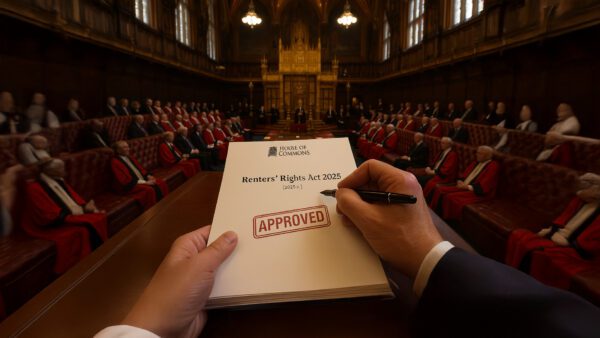The Labour Party’s recently unveiled manifesto ahead of the upcoming general election presents their plan which is aimed at transforming employment law in the UK. The manifesto reinforces the comprehensive proposal titled“Labour’s Plan to Make Work Pay: Delivering a New Deal for Working People,” which outlines significant changes that could reshape the landscape for employers and employees alike.
Whilst it is not yet entirely clear how each of these changes will operate in practice, it is clear that these proposals, if implemented, will require employers to adapt swiftly. Therefore, it is crucial to stay ahead of these proposed changes and understand their potential impact on your business operations and HR practices.
We have summarised the key initiatives set out in Labour’s manifesto and ‘Make Work Pay’ plan below. The following list is not exhaustive but highlights the key areas which employers and HR should consider in preparation of the upcoming election and potential changes to UK employment law.
Key Proposals
Day One Rights
The manifesto proposes to provide basic rights from the first day of employment by abolishing the qualifying period for unfair dismissal, sick pay, and parental leave. These changes could be implemented as early as April 2025 which means businesses will need to consider adapting their current recruitment processes and implementing more robust probationary periods and early performance management strategies.
Unified Worker Status
Labour plans to simplify the complex landscape of employment status by creating a single employment status of “worker” for all except those that are genuinely self-employed. This could extend fundamental rights to a broader spectrum of workers, and employers will be facing reassessment of their workforce classifications, greater administrative burdens and impacts on payroll practices, tax classifications and contractual arrangements. There are currently a number of “workers” who currently fall between employees and the genuinely self-employed.
This includes people like gig economy workers, casual workers, agency workers, freelances and independent contractors who may now find themselves given the same protections as employees.
Enhanced Family Rights
Labour proposes several family friendly initiatives, including mandatory parental leave, additional protections against pregnancy-related dismissal and support for carers. With Labour’s pledge to review parental leave policies within the first year, employers should update their policies and procedures to align with these changes.
Flexible Working & Right To Switch Off
Labour pledges to make flexible working a day one right except where it is not feasible. Employers will need to consider the operational challenges it may face especially for roles which have fixed hours or require on-site presence. These changes aim to support work-life balance and include Labour’s introduction to a right to “switch off” outside of working hours. This initiative combats the blurring of work-life balance and employers will need to establish clear guidelines and expectations regarding out-of-hours communication.
Equal Pay and Anti-Discrimination Measures
Labour aims to extend equal pay protections to cover race and disability. In addition, they also intend to introduce ethnicity pay gap reporting. Employers with 250 or more employees would need to develop menopause action plans and include outsourced workers in gender pay gap reporting. Strengthening protections against maternity and menopause discrimination, as well as sexual harassment, will also be priorities.
Ending Zero Hours Contracts
Labour aims to eliminate what they term “exploitative” zero hours contracts, aiming to provide workers with more predictable working hours and greater job security. In particular, it ensures all workers will have the right to contracts with guaranteed minimum hours which reflect their regular hours over a twelve-week reference period. With its intentions to address “one-sided flexibility”, specific sectors such as hospitality and retail could be facing a significant impact. Employers may need to reassess their workforce strategies and consider alternative flexible working arrangements.
Genuine Living Wage
The Labour Party is aiming to enforce a genuine living wage by removing age-related bands and enduring fair compensation based on the cost of living. In addition, the manifesto includes stricter enforcement of sick pay, fair tips and banning unpaid internships. Employers will need to take into consideration its compliance with fair pay agreements and wage adjustments and compliance checks.
Enforcement & Tribunal Reforms
The manifesto promises a Single Enforcement Body to oversee and enforce workers’ rights more rigorously, potentially leading to increased scrutiny and penalties for non-compliance. Amendments to tribunal procedures could affect how employers handle disputes and legal challenges.
Preparing For The Changes
- Review and Update Contracts and Policies: Ensure that employment contracts, particularly those for zero hours and probationary employees, comply with potential new requirements.
- Strengthen HR Practices: Implement robust procedures for performance management, particularly during probationary periods, to mitigate the risks associated with immediate unfair dismissal rights.
- Prepare for Increased Compliance: Stay informed about the establishment of the Single Enforcement Body and be ready to adapt to increased regulatory scrutiny.
- Training and Development: Invest in training HR teams and senior managers on revised employment laws and best practices in workplace relations.
Conclusion
While the full extent and timing of these reforms remain uncertain pending election outcomes, the proposed changes to employment law represent a significant shift that will affect many aspects of business operations. Whether these reforms ultimately materialise, they signal a shift towards greater employee rights and corporate responsibility in employment practices. We are ready to provide tailored guidance and support to help you remain compliant and maintain a productive and positive workplace amid this evolving landscape.
To discuss any of the points raised in this article, please contact Ramona Bakshi or fill in the form below.









